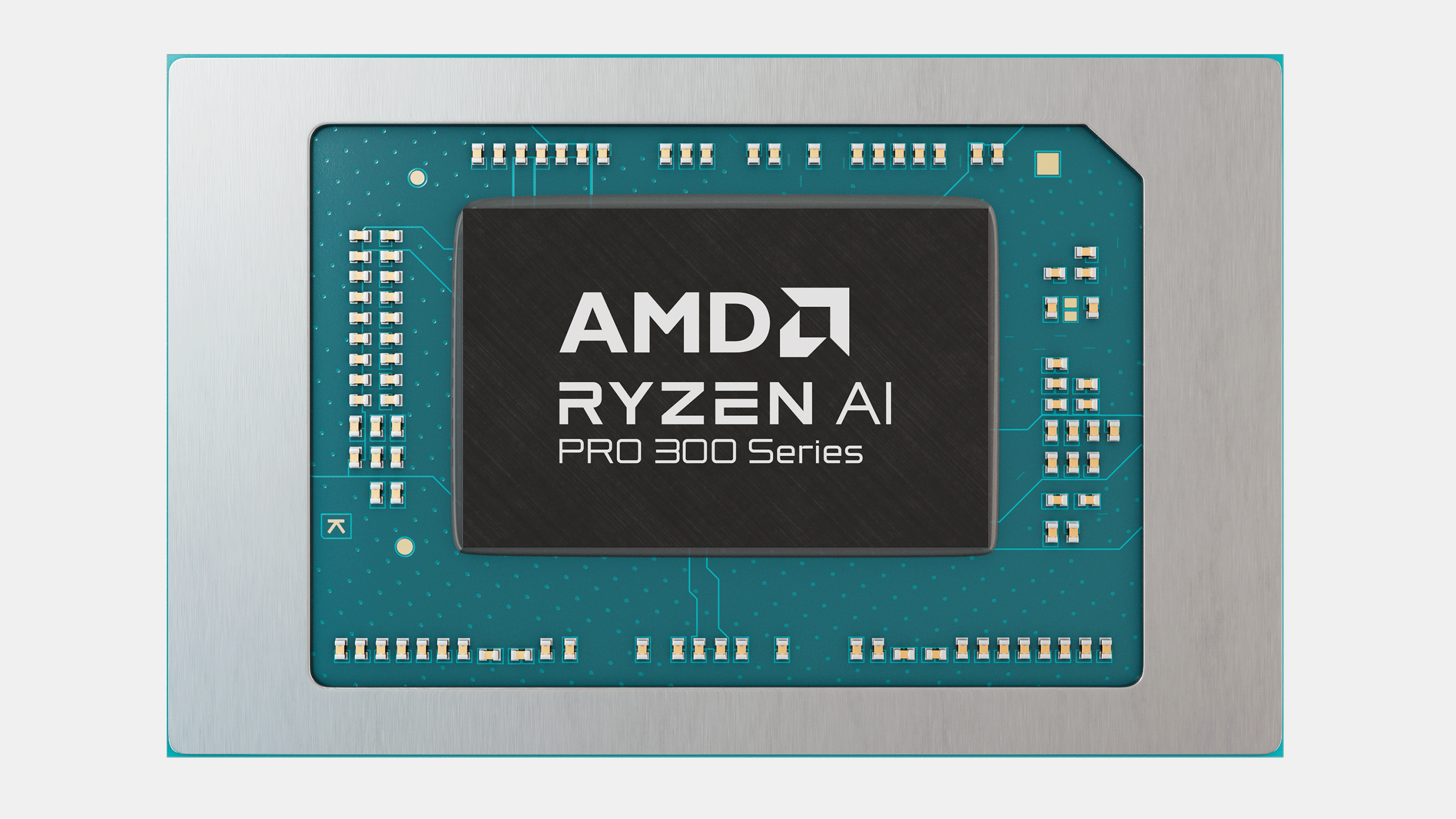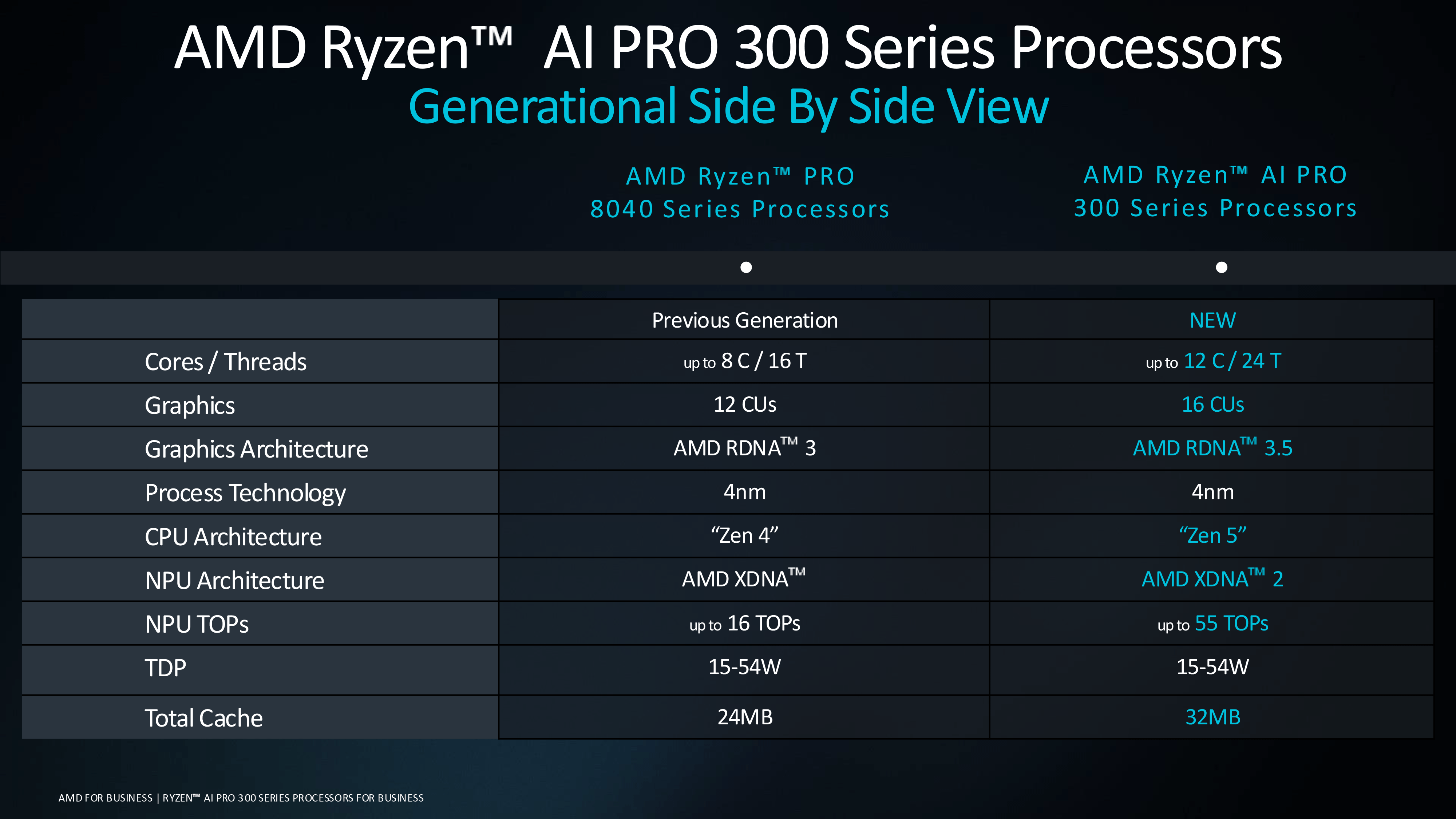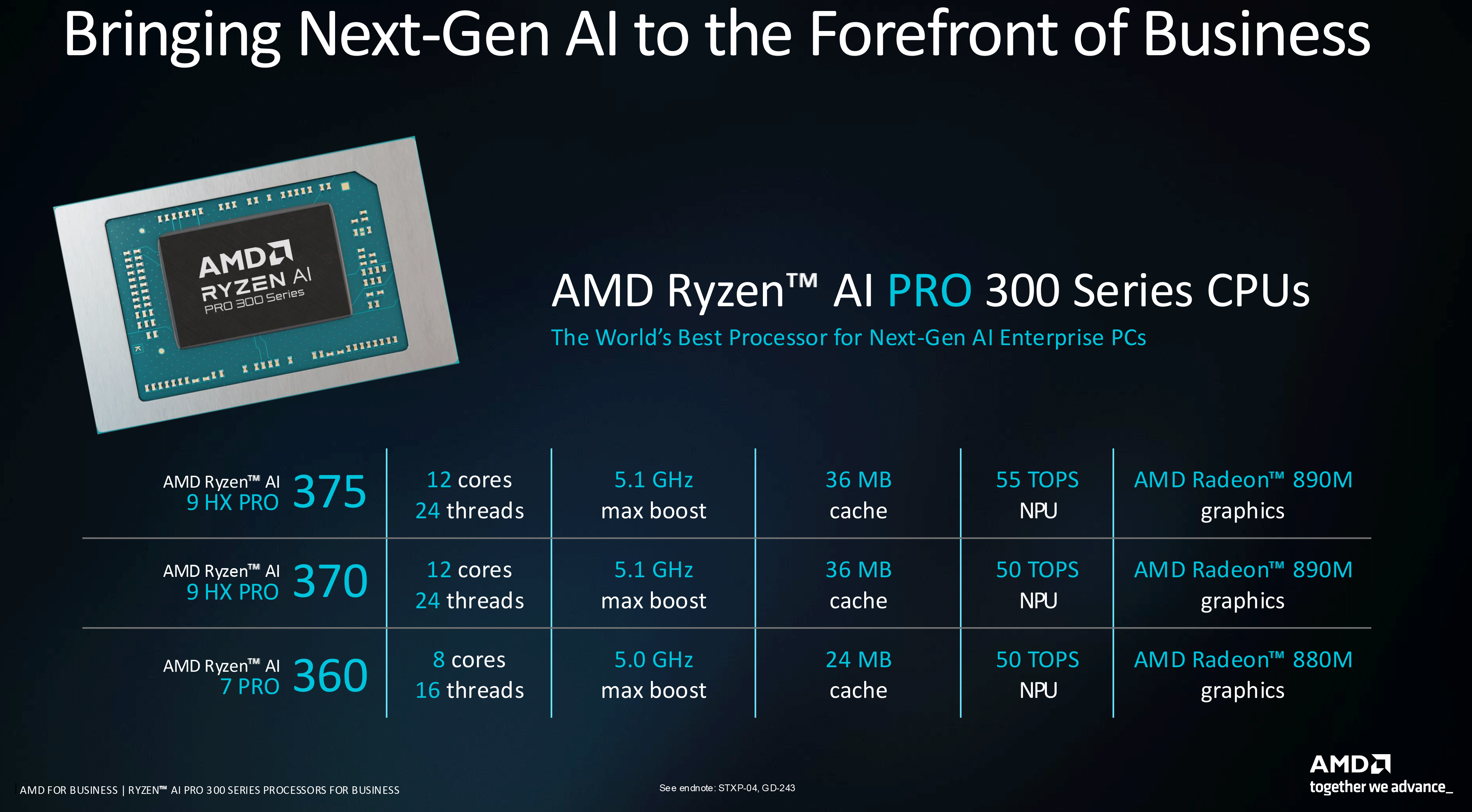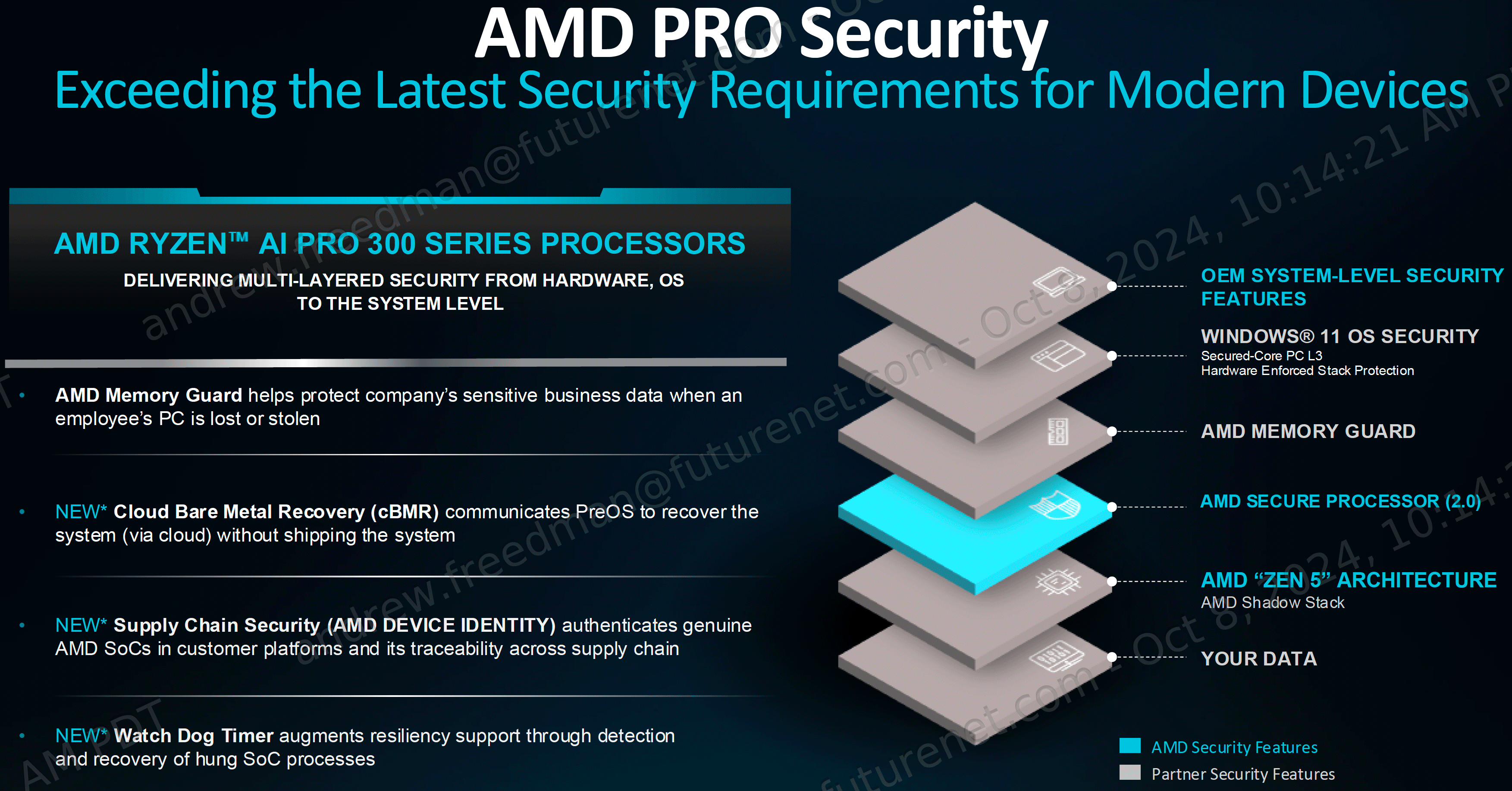AMD unveils Ryzen AI Pro 300 CPUs: Zen 5 and Copilot+ PCs for businesses and enterprise
Up to 12 Zen 5 cores with AI and business features.

Get Tom's Hardware's best news and in-depth reviews, straight to your inbox.
You are now subscribed
Your newsletter sign-up was successful
AMD today introduced its new Ryzen AI Pro 300-series processors designed for business and enterprise PCs. The new CPUs combine the latest microarchitecture from the company, an advanced GPU, and a Microsoft Copiliot+-certified neural processing engine (NPU) for AI capabilities with a 55 TOPS performance.
The AMD Ryzen AI Pro 300 family of CPUs essentially use the company's Strix Point silicon with up to 12 Zen 5 cores, an RDNA 3.5 GPU with up to 1,024 stream processors, the latest XDNA 2 NPU with a 50 TOPS – 55 TOPS performance (8-bit), and a set of features for commercial PCs, such as remote management, enhanced security capabilities (memory encryption, secure boot process, AMD secure processor 2.0, TPM 2.0), cloud recovery, and watchdog timers. Many of these features should be enabled by software (including Microsoft Windows), but AMD's partners like HP and Lenovo will surely install their own applications.
For now, AMD's Ryzen AI Pro 300-series line-up includes three modes: the range-topping 12-core Ryzen AI 9 HX Pro 375 with a 55 TOPS NPU, a slightly slower 12-core Ryzen AI 9 HX Pro 370 with a 50 TOPS NPU, and an eight-core Ryzen AI 7 Pro 360 with a 50 TOPS NPU. As usual, the HX parts have a TDP of up to 55W and are aimed at high-performance notebooks (including desktop replacement machines), whereas the regular processors can be programmed for a TDP of as low as 15W.
The new Ryzen AI Pro 300 CPUs not only feature significantly higher general-purpose and graphics performance compared to previous-generation AMD Ryzen Pro 7040-series processors, but also support Microsoft's Copilot+ capabilities, which are incoming with the next Windows update in November. AMD advertises Copilot+'s live captions and real-time translation, Cocreator, and the rather controversial Recall feature as some of the key capabilities enabled by its Ryzen AI Pro 300 CPUs.
In addition, the NPU supports a variety of AI-enhanced programs from developers that worked with AMD to enable its NPU, such as Adobe, Bitdefender, Blackmagic Design, and Grammarly, just to name a few.
AMD says that it has over 100 design wins with its Ryzen AI Pro platform through 2025, but it looks like HP and Lenovo will be the first to adopt AMD's Ryzen AI Pro 300-series processors for their business machines.
Get Tom's Hardware's best news and in-depth reviews, straight to your inbox.

Anton Shilov is a contributing writer at Tom’s Hardware. Over the past couple of decades, he has covered everything from CPUs and GPUs to supercomputers and from modern process technologies and latest fab tools to high-tech industry trends.
-
dalek1234 Reply
12 cores might be the limit of what they can fit. 16 cores would probably require a larger socket. If that's the case, then we need to wait for a die shrink (Strix Point, next year) to get 16 cores.snapdragon-x said:I'd like to see one with 16 cores.


